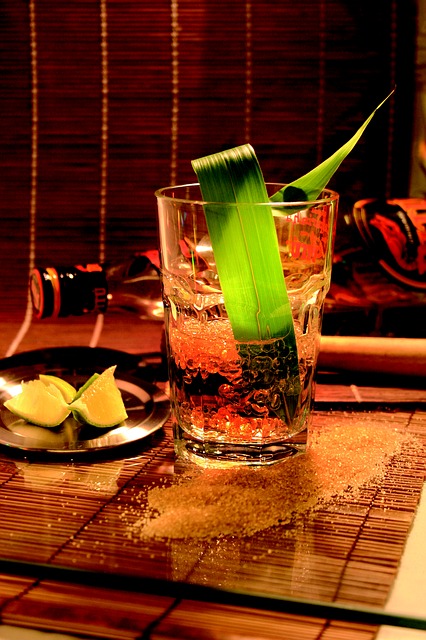THE BASICS OF MEZCAL
Mezcal is a Mexican spirit similar to Tequilla because of its use of agave root as a fermenting agent. The major difference between the two spirits is not only in the type of agave used but also in the process by which the drink is actually produced.
Only 8 of Mexico’s 31 states are recognized as producers of Mezcal, though there are local varieties produced in nearly every state. Since many different types of agave are native to Mexico, Mezcal can be made with about 30 varieties of the plant to produce different flavors and alcohol contents.
HOW MEZCAL IS MADE
To create this spirit, agave must first be harvested from the wild or from farms. Agave is then taken to conical pits in the ground and roasted for usually around 3 days. The method of roasting can greatly affect the flavor of the resulting Mezcal. For instance, many smoke-free varieties have been made in recent decades to cater towards American tastes, but the original Mezcals are much smokier. The roasting is what determines smokiness, and can be adjusted to make the drink either very smoky or smoke-free.
One the agave is roasted it must be ground down to a pulp. This is traditionally done with a stone grinding wheel pulled by a horse. The pulp is then fermented naturally in wooden vats and distilled to produce the end product. During the process, other flavors can be added to enhance the resulting flavor.
ON THE LABEL
You’ll see a few descriptive words on Mezcal bottles that will give you a couple hints about the taste of the drink. Check for these labels:
- Type I: This indicates that the Mezcal is made with 100% agave as a base. If the type is not listed, look for a label that says 100% agave to be sure you’re getting a type I Mezcal.
- Type II: Mezcal is required to be made with at least 80% agave. Type II Mezcal is made with at least the required amount of agave mixed with another fermenting ingredient like cane sugar. This brings in a different taste and will hide some of the agave flavors.
- White: Usually means it is a clear spirit that was aged for 2 months or less.
- Dorado: A white Mezcal to which some color has been added.
- Reposado: This Mezcal has been aged between 2 and 9 months in wooden barrels.
- Añejo: anything labeled like this has been aged a minimum of 1 year, but usually as long as even 2 to 3 years.
- Joven: A young Mezcal, probably not aged for more than a few months.
TYPES OF MEZCAL
Now that you’re a bit more familiar with Mezcal, here are the major types of Mezcal commonly found. They are based off of the type of agave used to make the drink.
Espadín
Easily 90% of all Mezcal is made from this type of agave. It grows in many different areas, both wild and farmed. There is no way to pinpoint a taste as so many different Mezcal producers make different flavors out of this type of agave.
Tobalá
This type of agave makes usually pretty expensive bottles of Mezcal because of its rarity and unusual land requirements. It only grows in rocky, shady areas and must be reproduced through pollination by birds and bats rather than spreading its own seeds. When it’s made into Mezcal, the taste is usually quite complex and fruity.
Tobaziche
Although this species of agave grows in different regions around Mexico, it has completely different flavors and names based on where it’s grown. In general it makes a very pleasant savory, herbal sort of flavor.
Tepeztate
You probably won’t find a lot of this Mezcal around even though it’s immensely popular. The reason is that the wild agave needed to make it takes at least 30 years to mature. The result is a very aromatic, intensely flavorful Mezcal.
Arroqueño
This Mezcal is prized for its delicious combination of flavors. Often when it’s finished it will have floral or vegetal tastes with a background of spicy, dark chocolate to complement it.
WHAT’S THE BEST MEZCAL?
With so many different varieties of Mezcal spirits, it’s impossible to say which is the best tasting. Since you now know how to find different types of Mezcal and to know generally what’s in them or how they were made based on the labels, you can look through a local supply and choose whichever sounds like it has the best taste to fit your unique liking.

